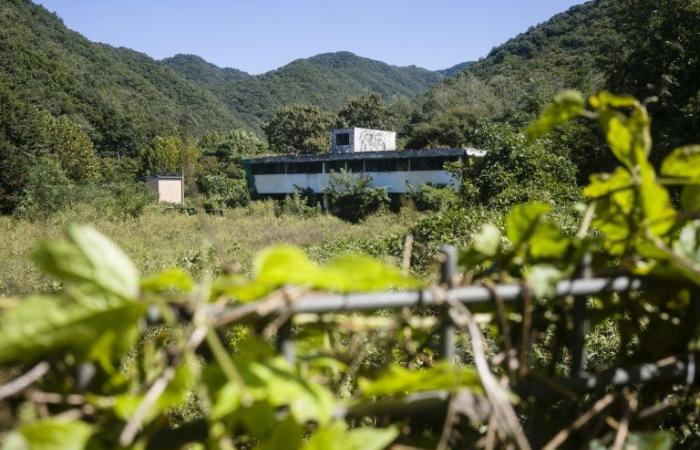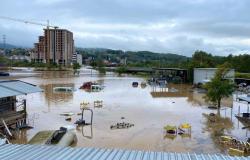
In South Korea, the fight against the forgetting of women forced to prostitute themselves for the US army
In South Korea, voices are being raised against the demolition of a former internment center managed by the authorities, where women forced into prostitution for American soldiers stationed in the country were subjected to forced treatment and screening. sexually transmitted infections.
The planned demolition of this building, formerly called the “monkey house” and today covered in graffiti, is causing debate among women victims of this forced treatment aimed at protecting the health of American soldiers.
“It was called the ‘monkey house’ because the women were locked up there like monkeys,” Choi Hei-shin, an activist and specialist on the subject, told AFP.
Located in a forest in Dongducheon (north), the building is to be razed in October by bulldozers, as part of a tourism project.
Kim Un-hui was forcibly taken to this internment center in the 1970s after she was unable to provide a negative test for sexually transmitted infections (STIs) to South Korean authorities at the time of her arrest on a U.S. base . She was locked up there and forced to receive an injection of penicillin.
It was so painful that she felt like someone was “stabbing her again and again,” said Ms. Kim, now 66.
She explains having to share a cramped room with twenty other women. One of them fainted after being given too large a dose of penicillin, then injured herself when she fell onto a bed frame.
The caregivers “stood there doing nothing,” recalls Ms. Kim, haunted by this memory.
The fight against the demolition of the “monkey house” is part of a broader struggle, that of recognition of the suffering of women claiming to have been trapped and forced to work in brothels administered by Seoul.
Unlike the “comfort women”, rounded up across Asia to serve as sex slaves to Japanese soldiers during the Second World War, the tens of thousands of women victims of these military establishments from the 1950s to the 1980s were subjected to very limited attention.
– “Crime d’Etat” –
In 2022, a landmark ruling by the South Korean Supreme Court found that the government had “prohibited and encouraged prostitution” among South Korean women, inflicting “loss of dignity” and “mental suffering”.
Ms. Kim explains that she responded to a job offer as a waitress. This was actually hiding sex trafficking. A pimp took her by force to a military brothel.
According to survivors’ testimonies, many women died after being forced to use drugs or subjected to horrific medical treatments for STIs.
“The authorities gave the victims more than ten times the amount of penicillin considered safe,” says Kim Eun-jin, director of Durebang, an organization that supports survivors.
Some were compensated by the South Korean state, but efforts to obtain an apology from Washington, which still has soldiers in the country, remained in vain.
“We saw our colleagues die sick and commit suicide,” 73 survivors warned in a letter sent in 2009 to then American President Barack Obama.
“The American military authorities in South Korea directly intervened in prostitution (in place) near military bases for the + health and comfort of American troops + (…) This was clearly a state crime “, they denounced.
– anonymous graves –
Some six kilometers from the “monkey house” is a cemetery, three-quarters of the graves of which are those of women subjected to prostitution, in the service of American troops.
These will soon all be moved so that the area can be transformed into a park and accommodate tourists.
AFP journalists noted that most of the anonymous graves were overgrown with weeds. Signs on site ask relatives to contact cemetery managers.
But many of the women working in brothels, steeped in shame, have cut ties with their families. This explains why “they were buried without names”, underlines researcher Choi Hei-shin.
Brothels set up near American bases injected a lot of money into the South Korean economy: added to the bars and barbers frequented by American soldiers, these sectors represented 25% of South Korean GDP in the 1960s and 1970s.
The state “took advantage of their bodies, used them as simple tools,” adds Ms. Choi.
Today, survivors are seeking compensation.
“We have been mistreated by our own country,” said Ms. Kim. “They are trying to erase (our history) from history.”
Do you have a real estate project in mind? Yakeey & Médias24 help you make it happen!





